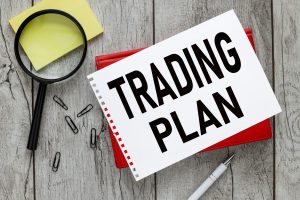
Embarking on a successful journey in trading requires discipline, steadfastness, and the ability to adhere strictly to a plan. The article, “How Can I Avoid Overtrading And Stick To My Plan?” provides insights and offers smart techniques to help keep your trading behavior in check. Trading too often or excessively, known as overtrading, can quickly deplete your financial resources and emotionally drain you. You’ll discover useful tips on how to meticulously plan your trades, maintain strong discipline, manage your emotions, and ultimately avoid the pitfalls of overtrading. With these tools at your disposal, you can confidently navigate the tumultuous waters of trading and keep your ship steadily on course towards your financial goals.
Understanding Overtrading
Definition of overtrading
Overtrading happens when you conduct more trades than necessary or planned out in your strategy. This often occurs when trying to recover losses or when being driven by the excitement of making huge profits quickly.
Why overtrading is detrimental
Overtrading can be detrimental to your trading account for several reasons. Firstly, it raises your transaction costs, thereby eating away at your profits. Secondly, it increases your risk exposure as each trade carries a certain degree of risk. Lastly, overtrading can lead to emotional fatigue, affecting your decision-making ability and causing hasty and ill-thought decisions.
Common signs of overtrading
Recognizing the signs of overtrading is vital to avoid falling into the trap. Some of the signs include making trades outside your planned strategy, consistently having open positions in the market, experiencing excessive fear or excitement while trading, and regularly using large amounts of leverage.
Common reasons for overtrading
Often, overtrading is driven by emotional triggers, such as the thrill of potential profit or the fear of missing out. Other times, it is due to lack of a robust trading plan or having too much of a blinkered focus on short-term gains. A lack of patience and discipline can also lead to overtrading.
The Psychology Behind Overtrading
Role of emotions in overtrading
Emotions like fear and greed play a significant role in overtrading. Fear can lead you to make hasty decisions to avoid potential losses, while greed can entice you to take unnecessary risks.
Impulse trading and decision-making
Impulse trading—making trades based on a sudden instinct or feeling—can easily lead to overtrading. Decision-making in trading should always be based on careful analysis, not on momentary hunches or emotions.
Cognitive biases leading to overtrading
Cognitive biases such as overconfidence bias and confirmation bias can also lead to overtrading. Overconfidence bias makes you believe that your skills and ability are superior, resulting in taking on more trades. Confirmation bias can lead you to seek out information that supports your viewpoint, disregarding any information to the contrary.
Psychological traps and their impact on overtrading
Psychological traps such as the gambler’s fallacy, where traders believe that past losses will result in future profits, can lead to overtrading. It’s crucial to understand that every trade is independent, and past performance does not guarantee future results.
The Importance of a Trading Plan
What comprises a good trading plan
A good trading plan includes clear trading goals, a specified risk-reward ratio, defined entry and exit points, and set stop loss and take profit levels. It should also account for market conditions and your own emotional responses to market events.
How a trading plan reduces risk
A trading plan helps to maintain discipline and offers a roadmap when emotion comes into play, thereby reducing risk. It eliminates impulsive or reactionary trades by creating a structured approach to trading, reducing the chance of overtrading.
Role of a trading plan in decision-making
A trading plan serves as a guide to help make informed decisions. By strictly following your plan, you can remove the emotions that might interfere with your trading decisions, leaving them based on facts and analysis instead.
Why sticking to a trading plan avoids overtrading
By sticking to your pre-defined trading plan, all trades become planned and calculated. This helps to avoid the temptation to make impulsive trades driven by emotions. A trading plan adds discipline to your trading and reduces the occurrence of overtrading.
Formulating a Robust Trading Plan
Defining your trading goals
When formulating a robust trading plan, start by defining your trading goals. What do you aim to achieve with each trade? Your goals should be specific, measurable, achievable, relevant, and time-bound (SMART).
Calculating risk-reward ratio
The risk-reward ratio is a crucial part of your trading plan. This ratio compares the potential profit of a trade to the potential loss. Ideally, the potential reward should be greater than the risk.
Setting entry and exit points
Your strategy should clearly define your entry and exit points for each trade. This prevents impulsive decisions to enter or exit a trade.
Incorporating stop loss and take profit levels
Incidentals like stop loss and take profit levels are vital to maintain control of your trades. A stop loss order automatically closes your trade if the price goes against you to a certain extent, thereby limiting your loss. A take profit order does the reverse by securing your profit when the price reaches a predetermined level.
Integrating Emotional Self-Control in Trading
Understanding fear and greed in trading
Understanding your emotions and their impact on your trading decisions is a crucial step towards self-control. Fear and greed are two key emotions every trader needs to control to avoid overtrading and keep within their trading plan.
Teaching patience and discipline in trading
Patience and discipline are fundamental virtues in trading. They help you to wait for the right trading setup and to stick to your trading plan even amidst volatile market conditions.
How meditation and mindfulness aid trading
Meditation and mindfulness can be useful tools in trading. They make you more aware of your emotions and thoughts, enabling you to make wise, calm, and deliberate decisions.
Effective stress management techniques to avoid overtrading
Adopting stress management techniques can help you to maintain a calm mindset and avoid overtrading. Techniques such as regular exercise, adequate sleep, balanced diet, and relaxation techniques like deep breathing, yoga, and mindfulness can be beneficial.
Risk Management Strategies
Diversification as a risk management strategy
Diversification—spreading your investments across different assets, sectors, or geographies—helps to reduce your risk. It ensures you don’t put all your eggs in one basket, protecting your portfolio from severe losses if one trade goes wrong.
Appropriate position sizing
Appropriate position sizing is a crucial risk management strategy. It involves determining the amount of your account to risk on each trade, taking into consideration your risk tolerance and account size.
Utilizing a stop loss effectively
A stop loss effectively limits your risk on each trade by closing a trade automatically when the price reaches a predetermined adverse level.
Adjusting the risk-reward ratio based on market conditions
As market conditions change, so should your risk-reward ratio. In volatile market conditions, it might be prudent to adjust the ratio to protect your trading capital.
Time Management in Trading
Avoiding overexposure to market news
While staying informed is important, overexposure to market news can overwhelm you, influencing you to make impulsive trades. Stick to reliable news sources and limit your exposure to avoid overloading yourself with information.
Allocating certain hours for trading
By allocating specific hours for trading, you can maintain a healthy balance between your trading activities, personal life, and other responsibilities.
Avoiding trading during high volatility periods
Trading during high volatility periods can be risky and stressful. It can lure you into making a trade due to the potential high returns but can lead to significant losses due to the unpredictability in price movement.
Balancing trading with other life facets
Maintaining a well-rounded lifestyle is important for your overall well-being and can indirectly influence your trading performance. Balancing your personal life, work, and trading can reduce stress and improve your trading experience.
Educational Resources To Avoid Overtrading
Recommended books on trading psychology
Books on trading psychology provide insights into the emotional aspects of trading and ways to manage them. They can be beneficial in understanding overtrading and how to prevent it.
Online courses and tutorials on risk management
Online courses and tutorials can provide valuable information on risk management strategies, essential in preventing overtrading. They can help you to grasp concepts like diversification, position sizing, and using stop loss orders.
Webinars and workshops for effective trading strategies
Webinars and workshops offer an interactive platform to learn from experienced traders. They can provide practical strategies for successful trading and help you to understand and prevent overtrading.
Leveraging trading journals for continuous learning
A trading journal records your trades, thoughts, and emotions at the time of trading. Regularly reviewing your trading journal can help you identify patterns that lead to overtrading and give you insights on how to stop it.
Use of Technology to Avoid Overtrading
Automation in trading
Automated trading involves using a program or software to conduct trades according to pre-set criteria. This removes the emotional component of trading and can help to avoid overtrading.
Use of algorithms and bots
Trading algorithms and bots offer a systematic approach to trading, executing orders when pre-defined conditions are met, thus reducing the likelihood of overtrading.
Leveraging trading software for risk management
Many trading software come with built-in risk management tools, such as automatic stop loss orders and alerts when your account reaches a certain risk level. This helps to protect your account from excessive losses and prevent overtrading.
Effective use of alerts and signals to control trading
Trading alerts and signals can help you stick to your trading plan by informing you when pre-set market conditions are met. This means you don’t have to constantly monitor the market, thus reducing the chance of impulsive trading decisions.
Results of Avoiding Overtrading
Potential benefits of avoiding overtrading
Avoiding overtrading can bring several benefits. It can lead to reduced transaction costs, lower risk exposure, increased profits over the long term, better sleep, and a healthier trading experience.
Examples of successful traders who avoid overtrading
Successful traders understand the dangers of overtrading and are strict about adhering to their trading plans. They place quality over quantity and make each trade count.
Personal growth from disciplined trading
Avoiding overtrading and sticking to your trading plan can lead to personal growth. It teaches you self-control, patience, discipline, and emotional regulation—skills which are valuable not only in trading but in all areas of life.
Improvement in trading performance by sticking to plans
Sticking to your well-crafted trading plan ensures that every trade is well thought out, reducing the chance of poor trading decisions and overtrading. This discipline can lead to improved trading performance over time.
In conclusion, overtrading is a common pitfall for traders. However, with a good understanding of its causes and effects, a robust trading plan, emotional control, effective risk management, and continuous learning, you can avoid overtrading and achieve consistent, long-term trading success.




